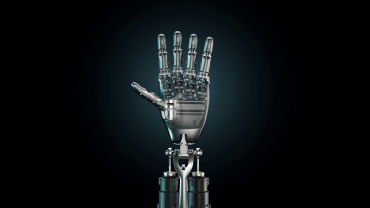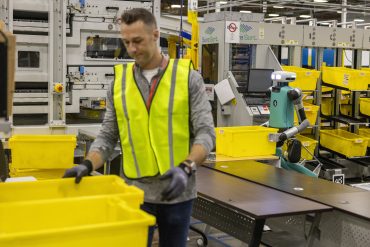
- AI
- AI Automation
- Workforce
Survey: 71% of Americans Fear AI Will Permanently Displace Jobs
5 minute read

Artificial intelligence automation drives historic workforce changes as companies slash jobs and invest billions in AI systems
Key Takeaways
- 71% of Americans fear permanent job displacement as AI transforms the workforce, with tech leaders predicting up to 50% of entry-level white-collar positions could disappear within five years.
- Political chaos concerns reach 77% among US adults who worry about adversarial countries exploiting AI tools for deepfakes and disinformation campaigns targeting sensitive political issues.
- 97 million new AI jobs projected by 2025 globally, though 77% require advanced degrees, creating a significant skills gap as companies invest billions in automation and efficiency gains.
Introduction
American workers face an unprecedented wave of anxiety as artificial intelligence reshapes the employment landscape. A comprehensive Reuters and Ipsos survey reveals that 71% of US adults fear AI will permanently displace human workers across multiple industries.
The survey, which gathered responses from 4,446 American adults, captures mounting concerns as major corporations accelerate AI adoption. Tech giants including Microsoft, Walmart, and CrowdStrike announce layoffs directly attributed to AI-driven operational changes, signaling a fundamental shift in how businesses approach workforce planning.
Key Developments
Microsoft researchers identify information-processing and communication roles as most vulnerable to automation. Customer service representatives, translators, and data entry specialists face immediate displacement risks as companies deploy AI chatbots and language processing tools.
Industry leaders deliver stark warnings about the transformation ahead. Anthropic CEO Dario Amodei predicts a “white-collar bloodbath,” forecasting that up to 50% of entry-level positions could vanish within five years. This assessment aligns with broader projections showing 30% of US jobs face automation by 2030.
The tech sector experiences immediate impacts as recent computer science graduates encounter unprecedented hiring challenges. Companies prioritize AI integration over traditional hiring, creating a paradox where technology expertise becomes both more valuable and more difficult to monetize through employment.

Market Impact
AI chatbots generate an estimated $8 billion in annual business savings across sectors, driving aggressive corporate adoption rates. Companies report significant productivity gains as automated systems handle routine tasks previously requiring human intervention.
Investment flows reflect this transformation, with businesses allocating substantial resources toward AI infrastructure and integration. The technology sector leads this shift, though manufacturing, retail, and financial services follow closely in automation deployment.
New job categories emerge alongside displacement concerns. Prompt engineers, AI ethics officers, and human-AI collaboration specialists represent growing employment segments, though these positions require specialized skills that existing workers often lack.
Strategic Insights
The workforce transformation creates distinct winners and losers across skill levels. Workers with advanced technical degrees gain leverage as companies seek AI implementation expertise, while those in routine cognitive tasks face displacement pressure.
A critical skills gap emerges as 77% of projected new AI jobs require advanced education. Companies invest in upskilling and reskilling programs, but worker adaptation lags behind technological advancement, creating structural unemployment risks.
Global projections suggest 85 million jobs face displacement by 2025, though 97 million new roles could emerge simultaneously. This net positive of 12 million positions masks significant disruption for individual workers and communities dependent on vulnerable industries.

Expert Opinions and Data
OpenAI CEO Sam Altman and Amazon CEO Andy Jassy forecast substantial workforce reductions as AI capabilities expand. Their assessments reflect industry consensus that current business models cannot sustain existing employment levels amid rapid automation.
Security concerns compound employment fears, with 77% of Americans worried about political chaos from AI misuse. OpenAI’s June report documents how adversarial actors exploit AI tools, including a Chinese operation using ChatGPT to generate fake social media content on politically sensitive topics.
Survey data reveals broader societal concerns beyond employment, with 66% of respondents worrying about AI’s impact on human relationships and 61% expressing concern over energy consumption. These findings suggest public skepticism extends beyond immediate economic impacts to fundamental questions about technology’s role in society.
Conclusion
The AI employment transformation accelerates as companies prioritize efficiency gains over traditional workforce models. While new job categories emerge, the transition creates significant displacement risks for millions of American workers.
Current data demonstrates both the promise and peril of AI adoption, with substantial productivity gains accompanying widespread job elimination fears. The challenge lies in managing this transition to minimize disruption while capturing technology’s economic benefits.







